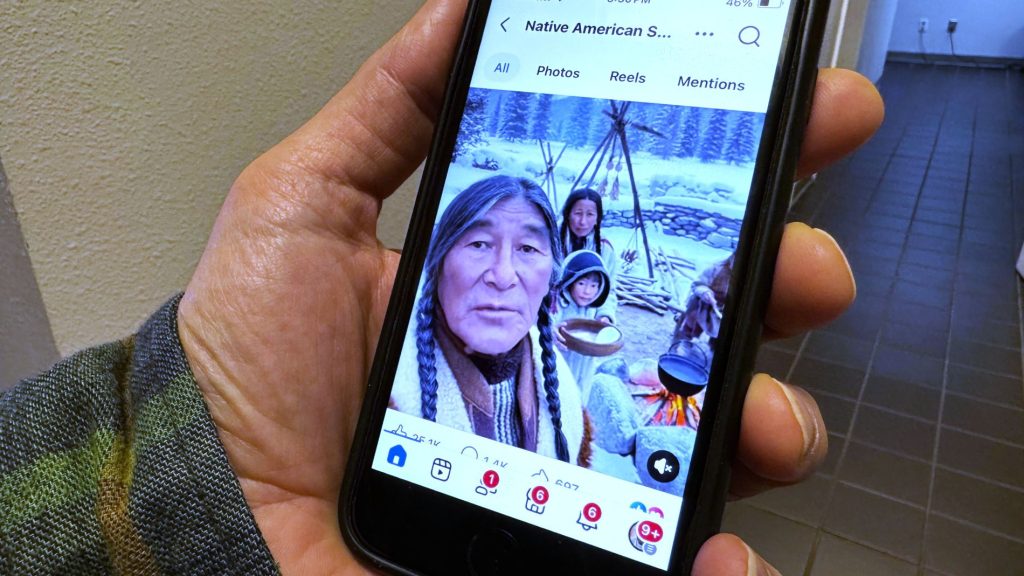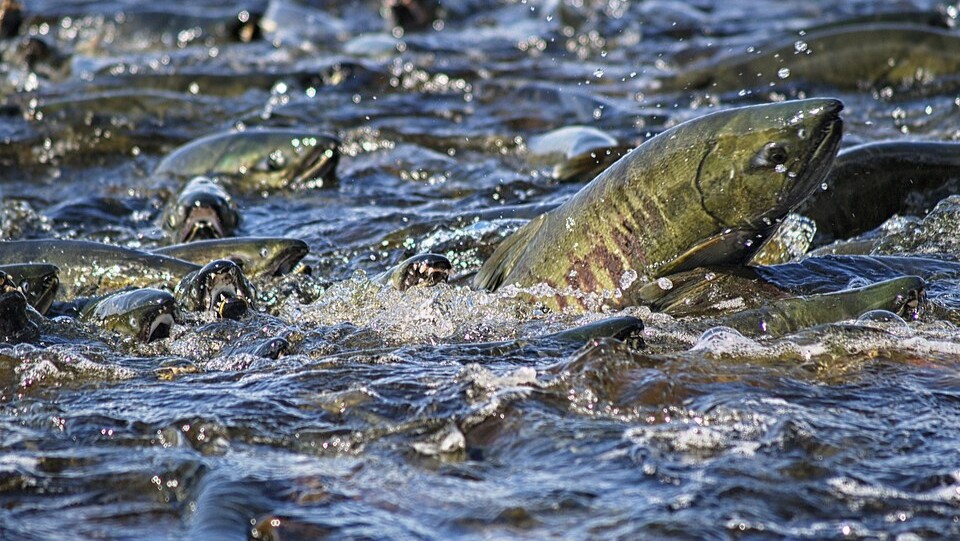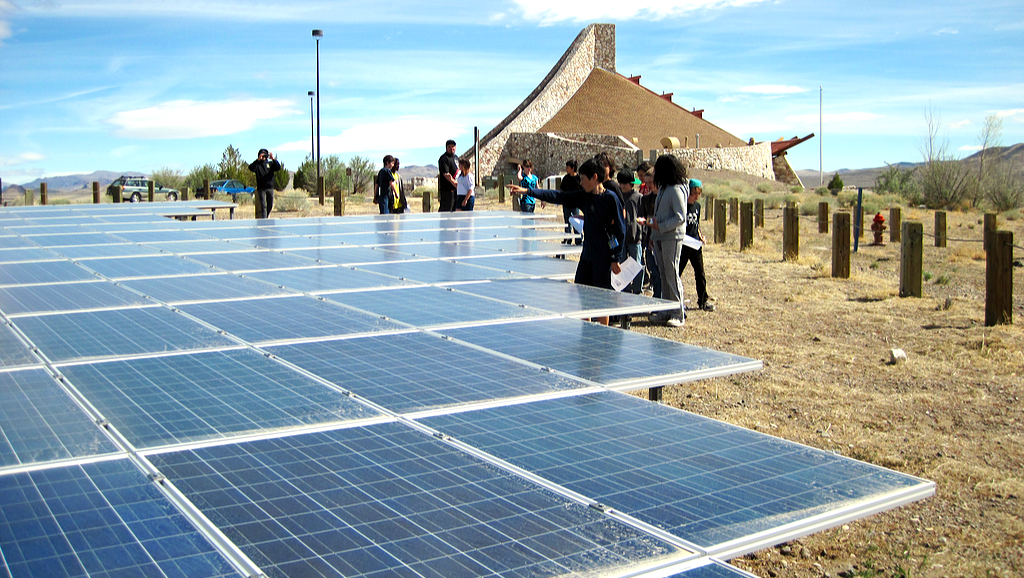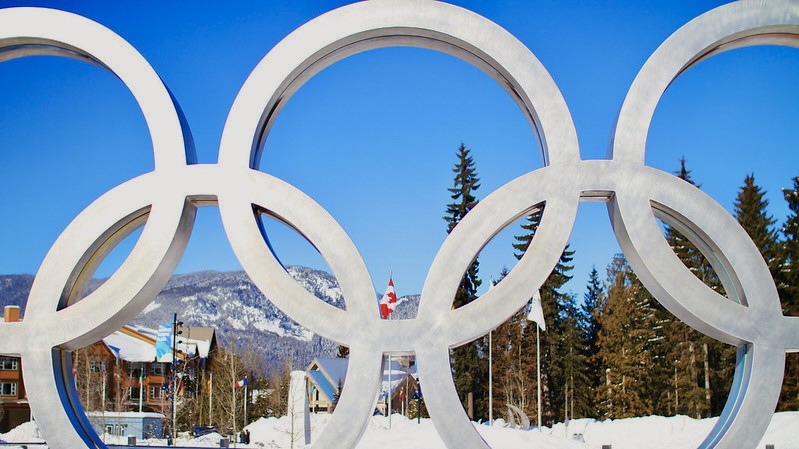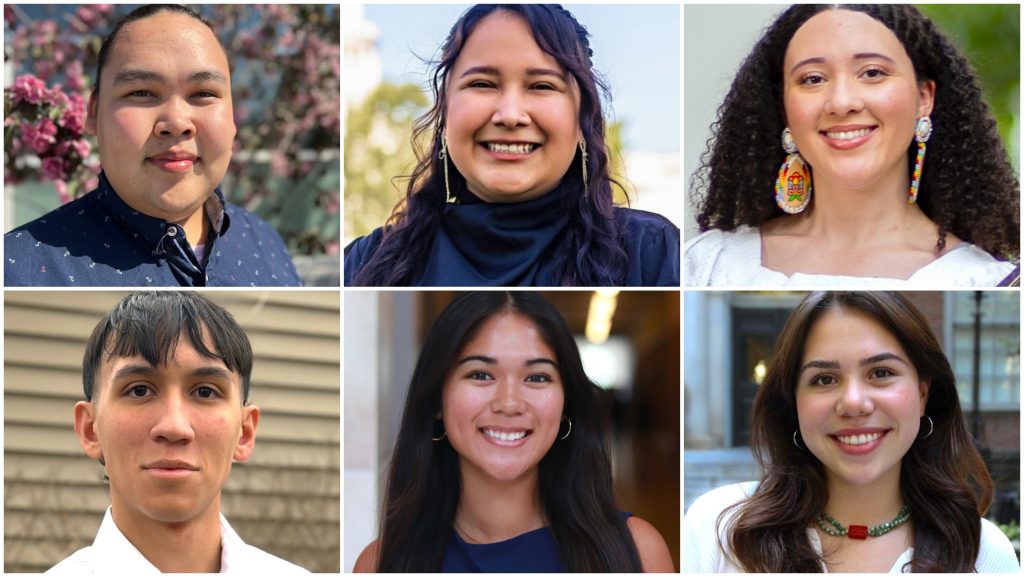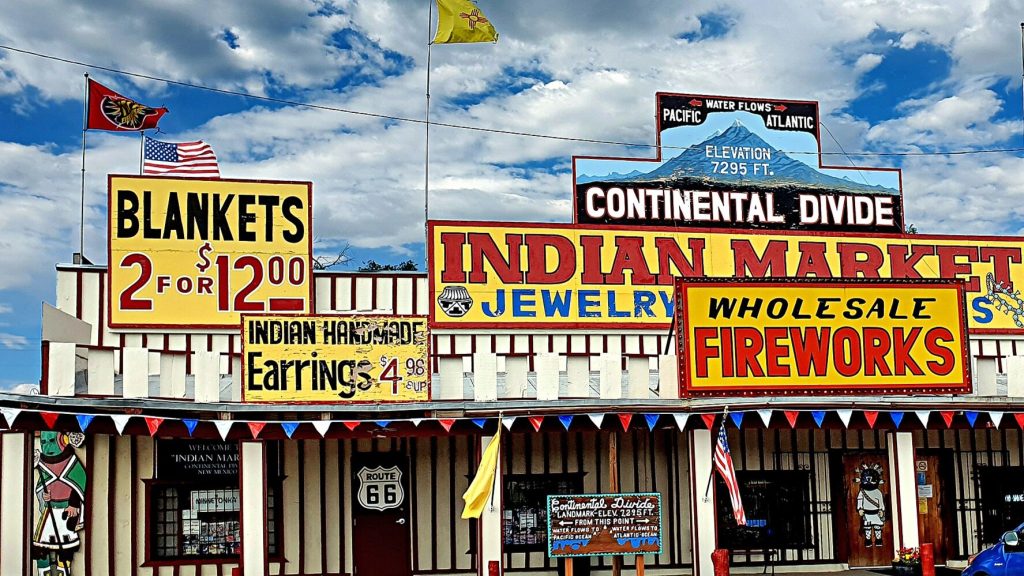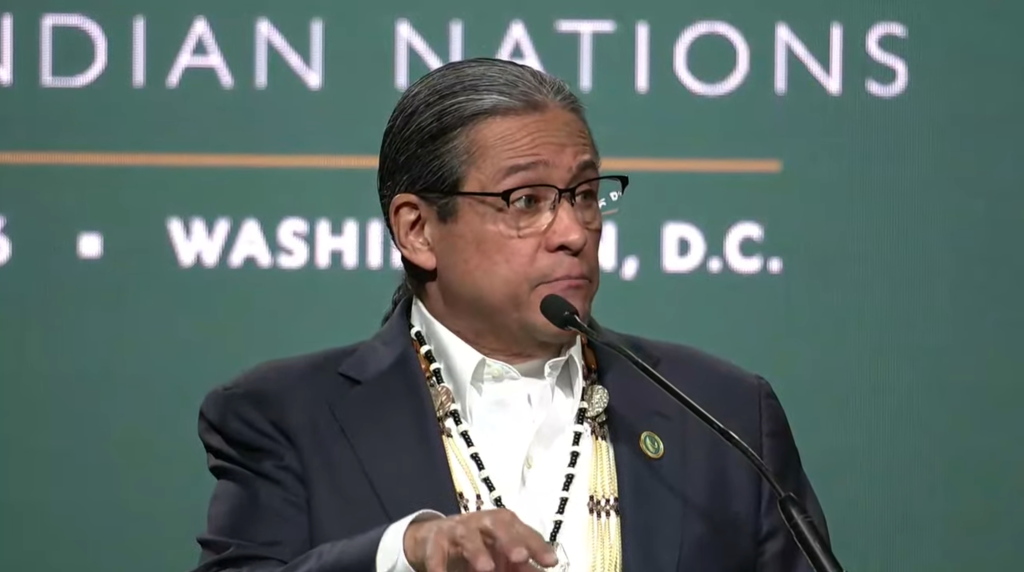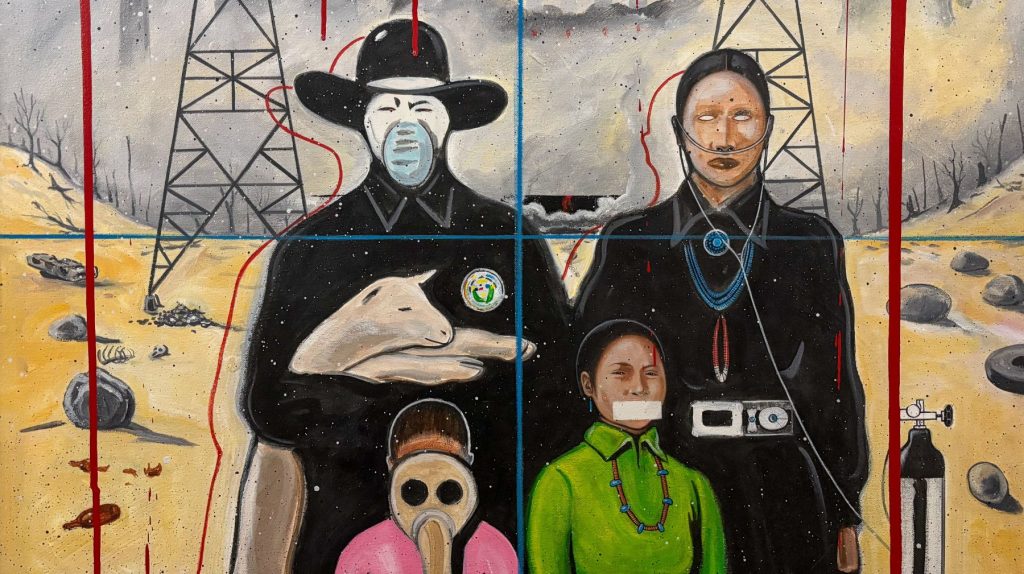Native Americans have worked hard for decades to counter the stereotypes perpetuated in old movies and television shows about the American West. Now a new generation of Native technology experts worry that artificial intelligence is eroding that work. Scores of AI-generated images and videos are flooding people’s social media For You pages. The creations are within easy reach of anyone typing a prompt into any AI generator that scrapes information from millions of sources. Often posted by anonymous creators, the products of those prompts present vaguely Native visual and audio characteristics with little to no authentic cultural connections. Along the way they generate hundreds of thousands of admirers. We’ll talk about the work to counter the looming onslaught of AI cultural appropriation.
Wednesday, February 18, 2026 – Native in the Spotlight: Keeya Wiki
Podcast: Play in new window | Download (Duration: 56:46 — 39.0MB) | Embed
Keeya Wiki (Yurok and Maori) is not yet old enough to vote, but she is making waves in official discussions about climate policy and environmental sustainability. She was among a group of young people who made a historic kayak journey down the Klamath River from its source in the Cascade Mountains to its confluence with the Pacific Ocean after the largest dam removal project in history. It was both a celebration of her tribe’s accomplishments and a statement about what she sees as the future of successful, tribally-driven environmental policy. Since then she has also served as a delegate to the U.N.’s recent climate summit in Brazil. We’ll hear about her determined and creative intersection of cultural knowledge and modern climate activism.
GUESTS
Keeya Wiki (Yurok and Māori descent), Indigenous advocate
Ruby Williams (Karuk), Native water activist and kayaker
Break 1 Music: BALDH3AD! (song) Theia (artist)
Break 2 Music: Digital Winter (song) Ya Tseen (artist) Stand On My Shoulders (album)
Tuesday, February 17, 2026 – Will limiting commercial trawler bycatch save salmon in Alaska?
Podcast: Play in new window | Download (Duration: 57:13 — 39.3MB) | Embed
The federal panel that oversees commercial and subsistence fishing in Alaska is putting a hard limit on the number of chum salmon that are caught — and wasted — by commercial pollack trawlers. It is a long awaited — and controversial — decision by the North Pacific Fishery Management Council after years of outcry by tribes to address the factors that go into the disappearing runs of salmon that Alaska Native people have always relied on for survival. Although presented as a compromise, the bycatch limit is seen as a severe blow by commercial fishers, who say such restrictions could be catastrophic to the industry. The decision comes as the state also instituted severe regional restrictions on king salmon fishing because of low numbers. They are among the latest measures to address the big and complex ecological threats to what is historically the most productive salmon fishery in the world.
GUESTS
Charles Wright (Athabascan), secretary/treasurer for Tanana Chiefs Conference
Jonathan Samuelson (Yup’iaq and Dene), vice-chair of the Kuskokwim River Inter-Tribal Fish Commission
Craig Chythlook (Yup’ik), executive director of the Yukon River Inter-Tribal Fish Commission
Terese Vicente, policy and programs director for the Kuskokwim River Inter-Tribal Fish Commission
Full statement from the Alaska Pollock Fishery Alliance (APFA) mentioned in today’s show:
“The Council’s decision reflects the seriousness of the challenges facing Western Alaska chum salmon and the complexity of managing a dynamic fishery. The pollock industry respects the Council process and remains committed to working within this new framework while continuing to invest in science-based, real-time avoidance tools that have already delivered meaningful reductions in Western Alaska chum bycatch.
We share the goal of protecting salmon and the communities that depend on them while also providing the flexibility to respond to real-time fishing conditions. This allows the fleet to harvest its pollock while providing important benefits to Alaskan coastal and fishery dependent communities. While the alternative chosen establishes a restrictive cap and includes elements of fixed closures that may inhibit responsiveness to changing conditions, we understand the Council’s desire for strong incentives and clear parameters for management. We adhere to the principles of continuous improvement and will work with managers, scientists, and engaged partners to ensure the use of all available tools, including the use of real-time genetic analysis, to achieve meaningful conservation outcomes.”
Break 1 Music: Canoe Song (song) Chenoa (artist) Spirit of Salishan (album)
Break 2 Music: Digital Winter (song) Ya Tseen (artist) Stand On My Shoulders (album)
Monday, February 16, 2026 — Tribes come to grips with $1.5 billion federal funding retraction
Podcast: Play in new window | Download (Duration: 57:13 — 39.3MB) | Embed
With help from Congress, the Trump Administration stripped some $1.5 billion in federal funds previously promised to tribes. A lot of that was in the form of contracts for clean energy manufacturing and development — new money doled out three years earlier as part of President Joe Biden’s Inflation Reduction Act. A new analysis by the Brookings Institution identifies three funding and policy changes, including reductions in SNAP and Medicaid, that negatively affect Native Americans. The research firm says the actions continue a pattern of disinvestment and falls short of the federal government’s binding responsibility to Indian Country.
GUESTS
Robert Maxim (Mashpee Wampanoag), fellow at The Brookings Institution
Chéri Smith (Mi’kmaq descendant), president and CEO of the Alliance for Tribal Clean Energy
Timothy Nuvangyaoma (Hopi), vice president of tribal engagement for the Alliance for Tribal Clean Energy and former chairman of the Hopi Tribe
Dr. Kyle Whyte (Citizen Potawatomi Nation), professor at the School for Environment and Sustainability at the University of Michigan
Friday, February 13, 2026 – Indigenous Winter Olympians compete for gold in Italy
Podcast: Play in new window | Download (Duration: 57:14 — 39.3MB) | Embed
Inuit siblings Ukaleq and Sondre Slettermark are competing for Greenland in the biathlon at the 2026 Winter Olympics in Milan, Italy. In addition to making their mark in elite athletic competition, they have used their platform to speak out against the Trump administration’s threats to take over their homeland. The Slettermarks are among the handful of Indigenous athletes at this year’s Winter Games. Other athletes include a Métis luge competitor and a Māori freestyle skier. We’ll get insights from Indigenous journalists and athletes keeping up with the high level competition in Milan.
We’ll also get hear from Native activists in Minneapolis about a prayer camp set up outside a federal building.
GUESTS
Dan Ninham (Oneida Nation of Wisconsin), freelance reporter for ICT News and co-director of the North American Indigenous Athletics Hall of Fame
Eric Varderman (Cherokee Nation), founder and president of the Tulsa Curling Club
Mike Forcia (Bad River Tribe), American Indigenous Movement (formerly American Indian Movement) Twin Cities chairman
Tall Paul (Anishinaabe and Oneida), hip-hop artist
Break 1 Music: Ain’t That Lovin’ You Baby (song) Link Wray (artist) Rumble! The Best of Link Wray (album)
Break 2 Music: Taste Of Red Bull [Crow Hop] (song) Cree Confederation (artist) Horse Dance – Mistamim Simoowin (album)
Thursday, February 12, 2026 – Young ‘Champions’ inspire positive change
Podcast: Play in new window | Download (Duration: 57:14 — 39.3MB) | Embed
Moses Wiseman (Yup’ik) always knew he wanted to be a leader. Specifically, one with qualities that Wiseman learned from elders and other community members in the Village of Chefornak. At 24 years old, he is pursuing an MBA in strategic leadership at Alaska Pacific University, while also helping to create a Yup’ik glossary for health care providers. He and five other young, emerging Native leaders from all parts of the country have been selected for this year’s Center for Native American Youth’s Champions for Change. The program recognizes young people who exemplify leadership, taking steps to build positive outcomes in their communities. We’ll hear about these young people’s passions and what drives them to serve others.
GUESTS
Summer Wildbill (Confederated Tribes of Umatilla), 2026 Champion for Change
McKaylin Peters (Menominee), 2026 Champion for Change
Moses Wiseman (Yup’ik), 2026 Champion for Change
Kaylah Toves (Kanaka Maoli and Acoma Pueblo), 2026 Champion for Change
Break 1 Music: Generations (song) P. Town Boyz (artist) P. Town Boyz (album)
Break 2 Music: Taste Of Red Bull [Crow Hop] (song) Cree Confederation (artist) Horse Dance – Mistamim Simoowin (album)
Wednesday, February 11, 2026 – Route 66 changed tribes’ connections and culture
Podcast: Play in new window | Download (Duration: 56:47 — 39.0MB) | Embed
Long before it was fully paved, the road that became Route 66 from Chicago to Santa Monica, Calif., was designated as one of the nation’s original numbered highways 100 years ago. Crossing vast stretches of Native American land in places like Oklahoma, New Mexico, and Arizona, it eventually delivered a steady stream of mobile customers to enterprising Native merchants selling everything from trinkets to fine jewelry and textiles to frybread. The signature eye-popping billboards and kitschy neon signs that defined the route are mostly gone, but a few hold-out examples of 50s road-trip culture remain. And a number of new businesses are expecting to cash in with renewed interest in an old highway.
GUESTS
Ron Solimon (Laguna Pueblo), owner of Solimon Business Development and Strategy, a board member for the National Center for American Indian Enterprise Development, and chair of the Laguna Community Foundation
Delene Santillanes (Diné), marketing and projects coordinator for the City of Gallup tourism department and a new board member of the New Mexico Route 66 Association
Dr. Troy Lovata, professor of archaeology in the University of New Mexico honors college
Break 1 Music: Brown Eyed Handsome Man (song) The Wingate Valley Boys (artist) Navajoland U.S.A. Country Happening (album)
Break 2 Music: Taste Of Red Bull [Crow Hop] (song) Cree Confederation (artist) Horse Dance – Mistamim Simoowin (album)
Tuesday, February 10, 2026 – From the child tax credit to paperless refunds: what to know about this year’s tax returns
Podcast: Play in new window | Download (Duration: 56:13 — 38.6MB) | Embed
Millions of Americans will get a bigger tax refunds this year thanks to an array of new tax breaks, including a larger standard deduction and a child tax credit for those eligible. There is also the elimination for taxes on tips and a larger deduction for elders. But there are some things to look out for, including the move away from paper checks, which will require some additional work for those without traditional bank accounts, and a sizable reduction in the IRS staff, which could make for a more difficult time getting answers if you need help.
GUESTS
Chelsi Tsosie (Diné), Chistine A. Brunswick Public Service fellow with the DNA-People’s Legal Services low-income tax payer clinic
Leslie McLean, low-income tax payer clinic director for DNA People’s Legal Services
Break 1 Music: Coffee (song) James Bilagody (artist) Near Midnight (album)
Break 2 Music: Taste Of Red Bull [Crow Hop] (song) Cree Confederation (artist) Horse Dance – Mistamim Simoowin (album)
Monday, February 9, 2026 – 2026 State of Indian Nations
Podcast: Play in new window | Download (Duration: 56:02 — 38.5MB) | Embed
The past year has seen Leonard Peltier’s release from prison, record revenue from casinos and other economic development, and the addition of a new federally recognized tribe. It is also seen major upheaval in federal funds and staff that directly affect Indian Country. Looking ahead, tribes are navigating the potential loss of lucrative federal contracts and indications that consultation and treaty rights are taking a back seat. We’ll get the annual status update from National Congress of American Indians President Mark Macarro.
GUEST
Dr. Renae Ditmer (Sault Tribe of Chippewa Indians), journalist and independent economic development consultant
Break 1 Music: Intertribal (song) Blackfoot Confederacy (artist) Confederacy Style (album)
Break 2 Music: Taste Of Red Bull [Crow Hop] (song) Cree Confederation (artist) Horse Dance – Mistamim Simoowin (album)
Friday, February 6, 2026 — New art exhibitions offer creative interpretations of Native survival and endurance
Podcast: Play in new window | Download (Duration: 56:02 — 38.5MB) | Embed
As the country gears up to commemorate 250 years since the Declaration of Independence, several galleries are exploring the enduring strengths of Native Americans through both traditional and contemporary works. “Paper Trails: Unfolding Indigenous Narratives” at the Museum of Contemporary Native Art in Santa Fe, N.M. aims to stretch the boundaries of the paper medium while also examining Native cultural survival in the face of colonization. “Constellations of Place” at the Center of Southwest Studies at Fort Lewis College is centered on a visual history of Native people in Colorado. And Seattle’s Tidelands Gallery compiles a narrative inspired by “Lushootseed Creation Stories”. We’ll talk with artists and curators about how art inserts itself into the narratives being told about the origin of America.
We’ll also hear about the year-long streaming Native film festival, “Everything is Connected”, developed by Vision Maker Media.
GUESTS
Alana Stone (Sičhą́ǧu Lakȟóta and Diné), curatorial specialist at Vision Maker Media
Matika Wilbur (Swinomish and Tulalip), author, photographer, and CEO of Tidelands Native Art Gallery
Melissa Melero-Moose (Northern Paiute), artist and co-curator of “Paper Trails: Unfolding Indigenous Narratives”
Dr. Meranda Roberts (Yerington Paiute Tribe and Chicana) guest curator for “Constellations of Place”
Break 1 Music: Atomic Drop [feat. Northern Cree] (song) The Halluci Nation (artist) Path of the Heel (album)
Break 2 Music: Wahzhazhe (song) Scott George (artist) Killers of the Flower Moon Soundtrack (album)
- 1
- 2
- 3
- …
- 241
- Next Page »
